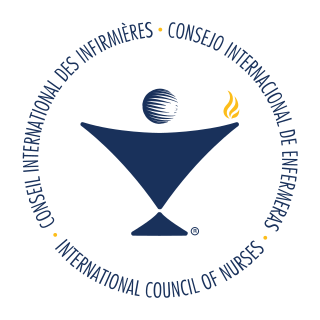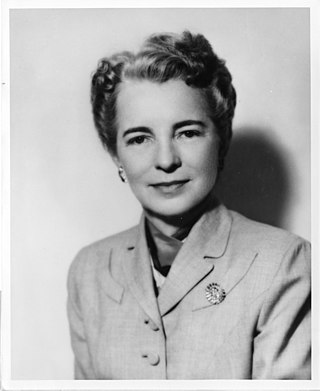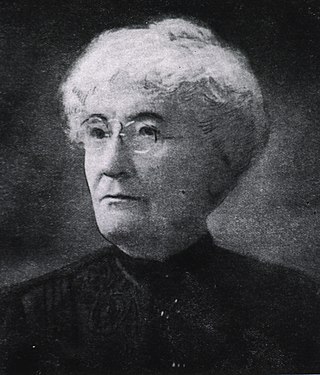
A registered nurse (RN) is a nurse who has graduated or successfully passed a nursing program from a recognized nursing school and met the requirements outlined by a country, state, province or similar government-authorized licensing body to obtain a nursing license. An RN's scope of practice is determined by legislation, and is regulated by a professional body or council.

School nursing, a specialized practice of public health nursing, protects and promotes student health, facilitates normal development, and advances academic success. School nurses, grounded in ethical and evidence-based practice, bridge the gap between health care and education, provide care coordination, advocate for quality student-centered care, and collaborate to design systems that allow individuals and communities to develop their full potentials. A school nurse works with school-aged children in the educational setting. Students experiencing illness or injury during the school day often report to the school nurse for assessment. Administering routine medications, caring for a child with a virus, or stabilizing a child until emergency services arrive after a more serious injury may all be a part of the job requirements. School nurses are well positioned to take the lead for the school system in partnering with school physicians, community physicians, and community organizations. They facilitate access to Medicaid and the State Children's Health Insurance Program to help families and students enroll in state health insurance programs and may assist in finding a medical home for each student who needs one.
The American Nurses Association (ANA) is a 501(c)(6) professional organization to advance and protect the profession of nursing. It started in 1896 as the Nurses Associated Alumnae and was renamed the American Nurses Association in 1911. It is based in Silver Spring, Maryland and Jennifer Mensik Kennedy PhD, RN, NEA-BC, FAAN is the current president.

The International Council of Nurses (ICN) is a federation of more than 130 national nurses associations. It was founded in 1899 and was the first international organization for health care professionals. It is headquartered in Geneva, Switzerland.
The Doctor of Nursing Practice (DNP) is a professional degree in nursing. In the United States, the DNP is one of three doctorate degrees in nursing, the others being the research degrees PhD and the Doctor of Nursing Science. The DNP is usually a short programme of study often online.

Mary Eliza Mahoney was the first African-American to study and work as a professionally trained nurse in the United States. In 1879, Mahoney was the first African American to graduate from an American school of nursing.
Orthopaedic nursing is a nursing specialty focused on the prevention and treatment of musculoskeletal disorders. Orthopaedic issues range from acute problems such as fractures or hospitalization for joint replacement to chronic systemic disorders such as loss of bone density or lupus erythematosus.

Gerontological nursing is the specialty of nursing pertaining to older adults. Gerontological nurses work in collaboration with older adults, their families, and communities to support healthy aging, maximum functioning, and quality of life. The term gerontological nursing, which replaced the term geriatric nursing in the 1970s, is seen as being more consistent with the specialty's broader focus on health and wellness, in addition to illness.
In the United States, a psychiatric-mental health nurse practitioner (PMHNP) is an advanced practice registered nurse trained to provide a wide range of mental health services to patients and families in a variety of settings. PMHNPs diagnose, conduct therapy, and prescribe medications for patients who have psychiatric disorders, medical organic brain disorders or substance abuse problems. They are licensed to provide emergency psychiatric services, psychosocial and physical assessment of their patients, treatment plans, and manage patient care. They may also serve as consultants or as educators for families and staff. The PMHNP has a focus on psychiatric diagnosis, including the differential diagnosis of medical disorders with psychiatric symptoms, and on medication treatment for psychiatric disorders.

Nursing is a profession within the healthcare sector focused on the care of individuals, families, and communities so they may attain, maintain, or recover optimal health and quality of life. Nurses may be differentiated from other healthcare providers by their approach to patient care, training, and scope of practice. Nurses practice in many specialties with differing levels of prescription authority. Nurses comprise the largest component of most healthcare environments; but there is evidence of international shortages of qualified nurses. Nurses collaborate with other healthcare providers such as physicians, nurse practitioners, physical therapists, and psychologists. Unlike nurse practitioners, nurses typically cannot prescribe medications in the US. Nurse practitioners are nurses with a graduate degree in advanced practice nursing. They practice independently in a variety of settings in more than half of the United States. Since the postwar period, nurse education has undergone a process of diversification towards advanced and specialized credentials, and many of the traditional regulations and provider roles are changing.
Margretta (Gretta) Madden Styles, EdD, RN, FAAN was an American nurse, author, educator and nursing school dean who conceived and helped establish national standards for certifying nurses in pediatrics, cardiology and other medical specialties. Dr. Styles was the president of the American Nurses Association from 1986 to 1988, and wrote five books and many articles published in medical journals.
Nursing in Japan did not develop as an occupation until the end of the nineteenth century. Initially introduced only in Tokyo in the late 1860s, small schools utilizing Western models were being opened by the late 1880s. In response to disaster relief, the Japanese Red Cross became an integral part of nursing development. By 1915, nurse registration had been established and public health nurses began working throughout the country. Nursing universities were established in the twentieth century and regulations were passed to develop standards for training and public health.

Lucile Petry Leone was an American nurse who was the founding director of the Cadet Nurse Corps in 1943. Because the Nurse Corps met its recruiting quotas, it was not necessary for the US to draft nurses in World War II. She was the first woman and the first nurse to be appointed as Assistant Surgeon General of the United States Public Health Service.

The history of nursing in the United States focuses on the professionalization of nursing since the Civil War.
Martha Minerva Franklin was one of the first people to campaign for racial equality in nursing.

Mary E. P. Davis (1840–1924) was a Canadian-born American nursing instructor and a founder of the American Journal of Nursing (AJN).
Dorothy Alice Cornelius was a Registered Nurse from Ohio who served in executive and in leadership positions in nursing. Cornelius was the only person to be president of the American Nurses Association, the International Council of Nurses, and the American Journal of Nursing Company.
The National Association of School Nurses (NASN) is an American organization that releases guidance on the role of school nursing and recommends minimum standards for the profession. It develops education programs for its members, publishes position statements and issue briefs on relevant subjects, and uses advocacy to increase support for school nursing.
The Lincoln School for Nurses, also known as Lincoln Hospital and Nursing Home School for Nurses, and Lincoln Hospital School of Nursing, was the first nursing school for African-American women in New York City. It existed from 1898 to 1961. It was founded by Lincoln Hospital in Manhattan. The hospital and nursing school, moved to 141st Street, between Concord Avenue and Southern Boulevard in Mott Haven, the South Bronx, after 1899.









